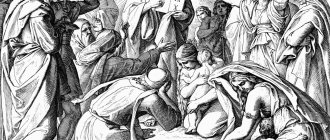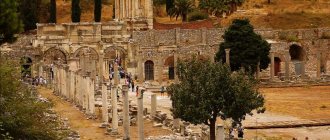Many people know that there are four books in the Bible called the “Gospel”. Some people know that the word “gospel” comes from a Greek word meaning “good news.” However, few can explain exactly what the “goodness” of this message is or how the gospel changes people's lives for the better. What is the gospel? How would you answer this important question?
“To me, the least of all saints, was given this grace—to preach to the Gentiles the unsearchable riches of Christ.” Eph.3:8
It is now more than twenty years since I first heard the gospel clearly presented, and by the grace given to me believed in Jesus Christ. Since then, through listening to sermons, reading books and articles, studying in seminary, working in the church, preaching and communicating with different people, I have sought to understand the gospel more deeply. Now it is clear to me that the more a person knows the gospel, the more he becomes convinced of the truth of two statements:
- The gospel, like the God it speaks of, is ultimately unsearchable (Eph. 3:8; Is. 40:28). Man cannot fully comprehend the depth of God's love and wisdom revealed in the gospel (Eph. 3:19).
- The essence of the gospel is simple and understandable even for children. The gospel can be expressed in simple words (1 Cor. 15:1-5).
When the preaching of the gospel is mentioned in the New Testament, the same truths are inevitably repeated or implied, which together constitute the essence of the good news. The essence or essence of something is that basic, inalienable and unchangeable quality, without which the object cannot exist and without which the object cannot be understood. This is an essence or “squeeze” that contains everything that is important and nothing secondary. The essence of the gospel remains unchanged at all times, although each generation is forced to place its emphasis depending on the peculiarities of thinking of the people to whom the good news is preached. This article is my attempt to help my contemporaries better understand the gospel, with the prayer that this knowledge will become saving for them.
Main Issue: Our Sinfulness in the Light of God's Holiness
“He will save His people from their sins.” Matthew 1:21
The Gospel proclaims and offers man God's solution to the problem of human existence. Therefore, before presenting the essence of the gospel, it is necessary to have a good understanding of the problem at hand. Based on the Holy Scriptures, it can be firmly stated that the main problem of man has to do with two incompatible realities: God's holiness and human sinfulness. In other words, this problem has two main sides: the first has to do with the perfect nature of God, the second has to do with the distorted nature of man.
1.1. Perfect Nature of God
“Holy, holy, holy is the Lord of hosts! The whole earth is full of His glory!” Isa.6:3
God is by nature holy, righteous and just. The law of God is not an expression of some arbitrary decisions of God that He could change at any time, but a reflection of His good and perfect essence - His nature, which cannot be changed. For example, the requirement to be holy is based on the fact that God is holy (Lev. 11:44-45; 19:2; 20:7; 20:26; 1 Peter 1:15-16), just as the commandment to love is given in light of the fact that “God is love” (1 John 4:7-8). By His nature, God hates all moral evil and seeks to correct or punish every injustice. Human beings, created in the image and likeness of God, even in their sinful state, instinctively know that God must act justly. This brings us to the second component.
1.2. Distorted human nature
“All our righteousness is like filthy rags; and we have all faded like a leaf, and our iniquities are carried away like the wind.” Isa.64:6
God created man in His image and likeness (Gen. 1:27). Man was originally sinless. The Fall caused countless suffering for millions of people and made all of Adam's descendants sinners before God (Rom. 5:12) and worthy of His righteous reward (Rom. 6:23). It is necessary to understand that in the Fall the very nature of man was distorted (Eph. 2:3), so that man in his fallen state tends to sin (James 1:13-15). If before the Fall Adam sinned through the free decision of his will, then after the Fall he committed sin at the call of nature distorted by sin. We, as descendants of the sinful Adam, sin because our fallen nature requires it (Rom. 7:14-20).
The problem with us is not that we do not want to do good enough, but that even “our righteousness” before God looks like something disgusting. Just as everything that grows in a radiation-contaminated area is harmful, so everything that comes from the sinful heart of man (Gen.6:5; Jer.17:9; Matt.15:18-19) is infected with the poison of sin. Even our best deeds are worthless before God.
The horror of the Fall is that we can no longer change our sinful nature. Through upbringing, education and the law, we can, with varying degrees of success, keep our sinful desires under control, but we are unable to change our nature (Jer. 13:23). The goodness of the gospel is that although people are unable to save themselves from sin, God has provided a Savior for people (Matt. 1:21).
Complicating factor
The difficulty is that today biblical concepts have ceased to have a significant influence on people's thinking. Most people do not think in terms of sin and holiness. The sinful nature has darkened their minds (Eph. 4:18), postmodern philosophy has given everyone the opportunity to unreasonably reject any claims, accordingly, few people feel an urgent need for salvation, and the gospel is perceived not as good news, but as a kind of fairy tale with no practical application for a modern person. However, just as a person with cancer will not be healed by imagining that such a disease does not exist, so a sinner will not be better if he denies the destructive reality of sin in his life. The problem of human existence has not disappeared.
“It is not the healthy who need a doctor, but the sick; I came not to call the righteous, but sinners to repentance.” Mark 2:17
To put it simply, the gospel is not for good people, but for bad people. The gospel is accepted as good news only by those who recognize their need for salvation from sin. Most people today, without denying their sinfulness, do not consider sin to be the main problem of man. More and more often, talk about sin and eternal punishment, at best, evokes a smile of suspicion of backwardness in views or religious fanaticism.
People only begin to see sin as their main problem when they "encounter" God's holiness (eg Isa. 6:1-5). As long as people compare themselves to each other, excuses such as “I didn’t kill anyone” can seem quite satisfactory. When, under the influence of the Holy Spirit, the light of God's Word begins to illuminate the deeds (John 3:19-20), the words (Matt. 12:36) and the thoughts of people (Heb. 4:12-13), when people begin to compare themselves with the requirements holy God, then their heart is filled with fear from the consciousness of their guilt before God and the righteousness of the coming punishment (Heb. 10:26-27). Even the conscience of a person who does not know the Holy Scriptures accuses him (Rom. 1:15), but only a conscience, purified in the crucible of God's revelation and enlightened by the Holy Spirit, brings down the full force of righteous condemnation for everything that does not correspond to the will of the Creator.
Only those people who evaluate themselves in the light of God's requirements begin to realize the absolute hopelessness and hopelessness of their sinful state, and at the same time their need for a Savior. Only those who understand that the main commandment consists of the requirement to always love God with all one’s being (Deut. 6:5; Matt. 22:36-38; Mark 12:28-30) understand that, even without killing anyone , they still violated and continue to violate the main commandment, accordingly being the main sinners. Begin to read the Scriptures and weigh your life in the light of God's Word; the self-confident sense of innocence before God will disappear like the morning mist with the rising of the sun, and the heart will be filled with guilt and fear of the Holy God.
Who is author?
According to ancient church tradition, the author of one of the four Gospels is the Apostle Matthew, who was a tax collector and followed Jesus. Eusebius of Caesarea, a church historian who lived in the 4th century, wrote in his explanations of the Gospel of Matthew that he first preached to the Jews, and then to representatives of other nations, handing them his scripture in Hebrew. It was subsequently translated into other languages.
One of the church teachers of the 4th-5th centuries, Saint Jerome of Stridon, claimed that he saw the original Gospel of Matthew written in Hebrew. It was in the Caesarea Library, which was collected by the martyr Pamphilus.
The text of the Gospel does not contain any references to the identity of the author. Therefore, many modern researchers think that the Gospel of Matthew was not written by an eyewitness, and therefore not by the Apostle Matthew, but by another author who is unknown. Today there is a hypothesis about two sources. The first is the Gospel of Mark, and the second is the so-called source Q.
This is a purported collection of the sayings of Christ. They, along with the Gospel of Mark, were taken as a source by the authors who wrote the Gospels of Luke and Matthew. The hypothesis about its existence was put forward in the 19th century. Scientists believe that the author was most likely a Jew who professed the Christian faith, and wrote his works for other Jewish Christians.
The Only Solution: Salvation by Faith in the Death and Resurrection of Jesus Christ
“God so loved the world that he gave his only begotten Son, that whoever believes in him should not perish but have eternal life.” John 3:16
Just as God's nature prompts Him to punish people for their sins, so the same nature prompts Him to save people from their sins. Knowing the depth of man's plight, God was able to find an effective solution. God’s work of saving man is very multifaceted, however, here two main aspects can be distinguished:
2.1. Through atonement, God solves the problem of justice.
Wherever the Word of God tells us about saving people from sin, two main events that happened to Jesus Christ are mentioned or implied: 1) substitutionary death and 2) victorious resurrection. The Apostle Paul put it in one sentence of 23 words: “...Christ died for our sins according to the Scriptures, and that He was buried, and that He rose again on the third day, according to the Scriptures, and that He appeared...” (1 Cor. 15:1- 5; and see Luke 24:46; Acts 17:3; Rom. 4:25; 10:9).
Substitutionary Death of Christ
“The Son of Man did not come to be served, but to serve, and to give His life as a ransom for many.” Matthew 20:28
The theme of redemption runs like a red thread and unites the Old and New Testaments (Job.19:25; Gen.22:11-18; Isa.41:14; 43:1; 63:16; Neh.1:10; Mark.10: 45; Gal.3:13; 1 Cor. 1:30; 1 Tim. 2:6; Heb. 9:12,15; 1 Peter 1:18-19; Rev. 5:9). God accomplished the redemption of sinners through the substitutionary death of Jesus Christ. A key aspect of the death of Jesus Christ is its substitutionary nature. Christ died not for His sins (He is sinless, see 1 John 3:5), but for our sins, i.e. bore the punishment in our place (Isa.53:5-6,10-11; Gal.1:4; 3:13; Rom.4:25; 1 Peter 2:24; 3:18; 1 John 2:2; Rev. 1:5), satisfying the demand of God's justice and enabling Him to be righteous and justify sinners.
“Being justified freely by His grace through the redemption that is in Christ Jesus, whom God set forth as a propitiation in His blood through faith, to demonstrate His righteousness for the forgiveness of sins that were previously committed, during the forbearance of God, to demonstrate His righteousness at the present time, that He may appear just and the justifier of him that believeth in Jesus.” Rom.3:24-26
For some, the doctrine of the substitutionary death of Christ either sounds like stupidity, for others, the whole hope of their salvation lies in the “word of the cross” (1 Cor. 1:18-24). Do not be among those who ridicule or reject this teaching. Without Christ's substitutionary sacrifice there is no gospel, no salvation.
Victorious Resurrection of Christ
"Who...was raised for our justification." Rom.4:25
Christ rose bodily on the third day after His death and, as proof, appeared to His disciples for 40 days (Acts 1:3; 1 Cor. 15:4-7). A person cannot be justified before God by doing the works of the law (Rom. 3:20; Gal. 2:16; 3:11; 5:4), because the law was given not as a means of justification, but as a means of convicting and directing a person to Christ (Rom.3:20; 7:7-8; Gal.3:24). He who believes in the risen Jesus is justified by Him (Acts 13:39; Rom. 3:24). To acquit means to declare one innocent. On the basis of Christ's substitutionary sacrifice and resurrection, God justifies everyone who believes in Jesus (Rom. 3:26; 5:1,9; 8:30,33). The risen Lord is now at the right hand of God and continues to justify those who believe in Him, interceding for them before the Father (Is. 53:11; Rom. 8:34; 1 John 2:2; Jer. 23:6).
2.2. Through regeneration, God solves the problem of sinfulness.
“Truly, truly, I say to you, unless someone is born again, he cannot see the kingdom of God.” John 3:3
God solves the problem of human sinfulness through a new spiritual birth of a person, called “birth from above,” “birth of the Spirit,” or “regeneration.” In the process of regeneration, God changes man's sinful nature so that man becomes alive again to God (Eph. 2:5) (see).
“To those who received Him, to those who believed on His name, He gave power to become children of God, who were born neither of blood, nor of the will of the flesh, nor of the will of man, but of God.” John 1:12-13
Revival takes its effective beginning in the redemptive feat of Christ (1 Peter 1:3; Rom. 6:4). It is closely related to the work of the Holy Spirit through the Word of God (1 Peter 1:23; John 1:12-13; 3:5-6). It is the new birth that radically changes a person's spiritual nature and makes it completely new in Christ (2 Cor. 5:17; Col. 3:10). As a result, a person loses the ability to live in sin and is prompted by his new nature to faith and repentance, holiness and love (1 John 1:7; 3:1-3,9; 4:7; 5:1,18; Rom. 6: 2-7). Just as the state of sin is natural for unregenerate man, so the state of holiness is natural for regenerate people. Repentance from sin and the pursuit of holiness for a regenerate person are a spiritual necessity caused by a new spiritual life in Christ.
Gospel of Matthew: content and interpretation
The first book of the New Testament is the Gospel of Matthew. It is also considered the first among the four Gospels that are canonical. Some scholars place it second only to Mark. However, there is no doubt that it was written before similar works by Luke and John. The time of writing has not been reliably established; traditionally the book dates back to 41-55. Since the 18th century, most theologians have adhered to the period between 70-80. The content, composition, and interpretation of the Gospel of Matthew will be discussed in the article.
Your choice: What to do about it?
Having explained the main problem of man and the solution provided by God, it remains to show how the gospel from theory becomes the practice of our life.
“If you confess with your mouth that Jesus is Lord and believe in your heart that God raised Him from the dead, you will be saved.” Rom.10:9
According to Scripture, the gospel produces its saving effect only when a person repents of his sins and believes in Christ (Mark 1:15; Rom. 1:16). Repentance for sin consists of personal understanding, acknowledgment and rejection of sin in one's life. Belief in the death and resurrection of Christ indicates personal understanding and acceptance of God's salvation and reconciliation with God. Both repentance and faith are gifts of God's grace and accompany regeneration by the Holy Spirit (2 Tim. 2:25; Eph. 2:6-8).
To believe in order to live or not to believe in order not to live - that is the question! Shakespeare adaptation
The gospel comes to us not simply as a choice (2 Cor. 5:20), but as a command (Acts 17:30). Not to believe in the gospel means to resist God and reject His good will; to believe in the gospel means to submit to God and accept His love in Christ.
* * *
The Gospel, as you see, is a message that consists of specific statements and promises based on historical events. Do you recognize yourself as a sinful person before God? Have you tasted that sin gives people not only temporary pleasure, but also terrible suffering, pain, regret, and fear? Christ calls you to Himself (Matt. 11:28), and I “in the name of Christ” ask you: “be reconciled to God” (2 Cor. 5:20).
Interpretation of the Gospel of Matthew
In Orthodox theology there are various methods of interpreting the Bible. The most famous theological schools are Alexandrian and Antiochian. Many Holy Fathers interpreted the inspired text.
Among the famous interpreters: John Chrysostom, Basil the Great, Maximus the Confessor, Gregory the Theologian, Theodoret of Cyrus, Theophylact of Bulgaria.
Each of them found amazing things in Scripture and, inspired by the Holy Spirit, interpreted the text according to Orthodox theology and Sacred Tradition.
In the fifth century, the text was divided into chapters to make it easier to navigate. The Gospel of Matthew consists of 28 chapters. A very brief summary of each chapter in the form of abstracts is presented below.
Chapter 1
The reader becomes acquainted with the genealogy of the Lord. Next, the evangelist talks about Joseph’s reaction when the righteous elder learned that the Blessed Virgin was pregnant. His desire to let go of the Most Pure One was stopped by an Angel. Having to go to Bethlehem for the census. Birth of the Infant God.
Chapter 2
The Magi discovered a star in the sky that foreshadowed the birth of the Savior of the world. It describes how they came to Herod with congratulations. The ruler of Judea wants to kill the born King.
The Magi bring gifts to the Infant God. The Lord reveals to the Magi the plan of the wicked ruler of Judea. Herod destroys children in Nazareth. Flight of the holy family to Egypt.
Chapter 3
Sermon of John the Baptist. The last Old Testament prophet calls for repentance. He points out to the Pharisees and Sadducees the need for moral purification. Repentance is not just a ritual, but a holistic change in the entire internal state. The Lord comes to John. The Forerunner is trying to refuse the Baptism of the Savior Himself. The word is that Jesus Himself will baptize with fire and spirit.
Chapter 4
After Baptism, the Lord retires to the desert, where he remains in fasting and prayer. A forty-day fast in the desert, which ends with the incredible exhaustion of the Savior. Temptations come from the Devil, who is trying to tempt Christ with the power of this world. The calling of the apostles. The first miracles, healings of sick, blind people.
Chapter 5
Pronunciation of the Sermon on the Mount. The perfection of the new moral law. A parable about the salt of the earth. The Lord calls not to be angry, to live in peace, to try not to offend or be offended. Try to pray for your enemies. Never swear by heaven, earth, or the name of God.
What's next?
The truths set forth here relate to the beginnings of the teaching of Christ (Heb. 6:1-2). A person who has embarked on the path of faith in Jesus Christ will have to grow in the knowledge of God all his life. If you understand and accept the good news with your heart, then you need to find a church where the Word of God is preached so that by being in fellowship with other people who share faith in the Lord, you can grow in the knowledge and fulfillment of His good will. In the church you will be able, according to the teachings of Christ, to seal your faith in Him through water baptism, testify to it through the Sacrament, and serve Him who died to give us life and life more abundantly (John 10:10).
With prayer, ✝
Pastor, Doctor of Theology
Gospel of Matthew - chapter interpretation
The Gospel of Matthew was written at the end of the first century. The main leitmotif is the preaching and life of Our Lord Jesus Christ. The text contains a huge number of references to the Scriptures of the Old Testament.
The story begins with a listing of the Lord's genealogy. Thus, the writer shows the reader that the Lord is a descendant of Abraham and King David. The time for all the prophecies has come and they have been fulfilled.
You can read the Gospel of Matthew for free in Church Slavonic here orthodic.org/gospel/verses/book/1/chapter/1.







